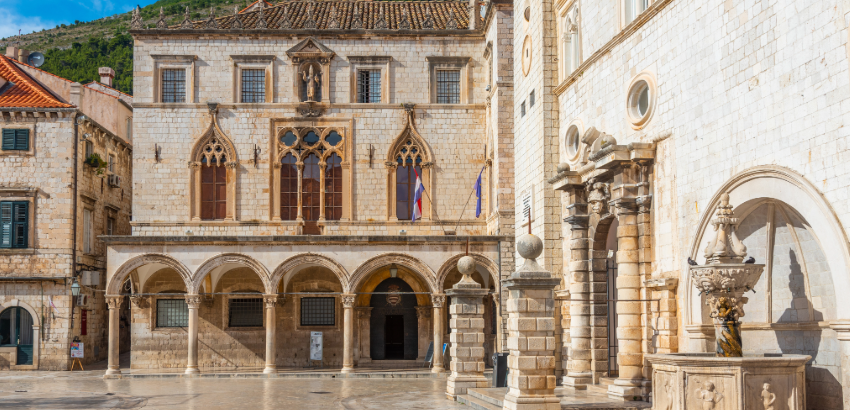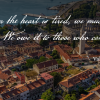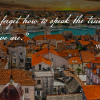
Published: October 1, 1998
View Original Document: Iskra-19.pdf
About This Issue
Iskra No. 19 explores the role of Croatia’s youth in shaping the country’s future, reflecting on both the nation’s achievements and its lingering postwar challenges. Editor Valentina Krčmar devotes her Motrišta column to the optimism, frustration, and resilience of young Croatians who came of age during and after the war. The issue blends heartfelt editorials with political coverage, cultural highlights, community updates from Toronto, and health and lifestyle features — offering a panoramic look at Croatia’s social landscape as the century drew to a close.
Motrišta: “Our Youth Have Not Failed Us”
Valentina’s editorial centers on her travels across Croatia, where she met young people in schools, universities, and workplaces. She describes them as energetic, intelligent, and full of purpose — the embodiment of Croatia’s hope. At the same time, she acknowledges the frustration among many who feel left without opportunities due to political corruption and economic hardship.
She recalls conversations with older generations who lament that “today’s youth are lost,” and counters that narrative with sharp conviction: the youth of the 1990s were the same ones who fought, died, and rebuilt when the nation was on its knees. Many of the men who defended Croatia in Vukovar, Dubrovnik, and other cities were only in their twenties. “They gave their youth for freedom,” she writes, “and we owe them more than gratitude — we owe them a future.”
Valentina argues that the country has failed to reward the very generation that secured its independence. She warns of brain drain and economic migration, urging society to give young people a reason to stay. The piece ends on a hopeful note: “If we trust our youth as they once trusted us, Croatia will thrive.”
National and Political News
The HINA section covers a broad range of national developments from mid- to late September 1998.
-
Foreign Minister Mate Granić addresses the United Nations General Assembly, emphasizing Croatia’s commitment to democracy and European integration. He reiterates support for the International Criminal Tribunal but criticizes its uneven prosecution of war crimes.
-
The beatification of Cardinal Alojzije Stepinac is announced, marking a historic moment for the Catholic Church in Croatia.
-
President Franjo Tuđman submits a formal declaration of assets, detailing his family’s property and finances amid international scrutiny.
-
The government reaffirms Croatia’s sovereignty in economic negotiations with Bosnia and Herzegovina, particularly regarding the port of Ploče and transit rights through Neum.
-
Baronesa Margaret Thatcher visits Zagreb, praising Croatia’s resilience and democratic growth while calling for continued moral leadership in postwar Europe.
Diaspora and Community Life
The Canadian-Croatian community is vibrant in this issue, with updates on cultural associations, music groups, and social organizations.
-
The Croatian Women’s Choir in Etobicoke invites new members for the fall season, emphasizing friendship and preservation of heritage through song.
-
The Croatian Pensioners’ Association announces a group trip to Oktoberfest in Kitchener, reflecting the community’s joyful engagement and solidarity.
-
Notices promote Croatian-language courses, events by HDZ Toronto, and humanitarian fundraising dinners benefiting children of fallen soldiers and disabled youth in Čakovec.
Reflections and Reader Letters
Several letters to the editor express appreciation for Iskra’s mission and share personal thoughts on Croatian identity and postwar life.
One reader from Burlington questions the ethics of Croatians crossing into “Serbian Krajina” to buy cheaper goods, calling it a betrayal of national dignity. “Have we forgotten so soon?” she asks, reflecting widespread unease about reconciliation versus pragmatism.
Another letter praises Iskra for truthful reporting and continued service to the diaspora, thanking Valentina and her team for keeping the community informed and united across borders.
Culture, Literature, and Language
A standout feature reprints Petar Preradović’s timeless poem “O jeziku” (“On Language”), celebrating the Croatian tongue as a living vessel of national identity. The inclusion of this classic work underscores Iskra’s commitment to cultural continuity — reminding readers that language, memory, and patriotism are inseparable.
Short cultural notes discuss new literary releases and profiles of innovators, while Svastice offers seasonal advice for home gardening and fruit planting.
News in English
The English-language section by Slavko Butković summarizes international reactions to Croatian politics, including commentary on tensions between President Tuđman and U.S. Secretary of State Madeleine Albright. Reports also highlight Croatian innovation success at the London International Fair, where inventors won several gold medals, and diplomatic congratulations sent to Germany’s new Chancellor Gerhard Schröder.
Closing Thoughts
Iskra No. 19 is a reflection on generational continuity — a bridge between those who fought for Croatia’s independence and those now charged with sustaining it. Valentina Krčmar’s voice is one of both hope and warning: if Croatia is to prosper, it must protect the dreams of its youth as fiercely as it once defended its borders.




